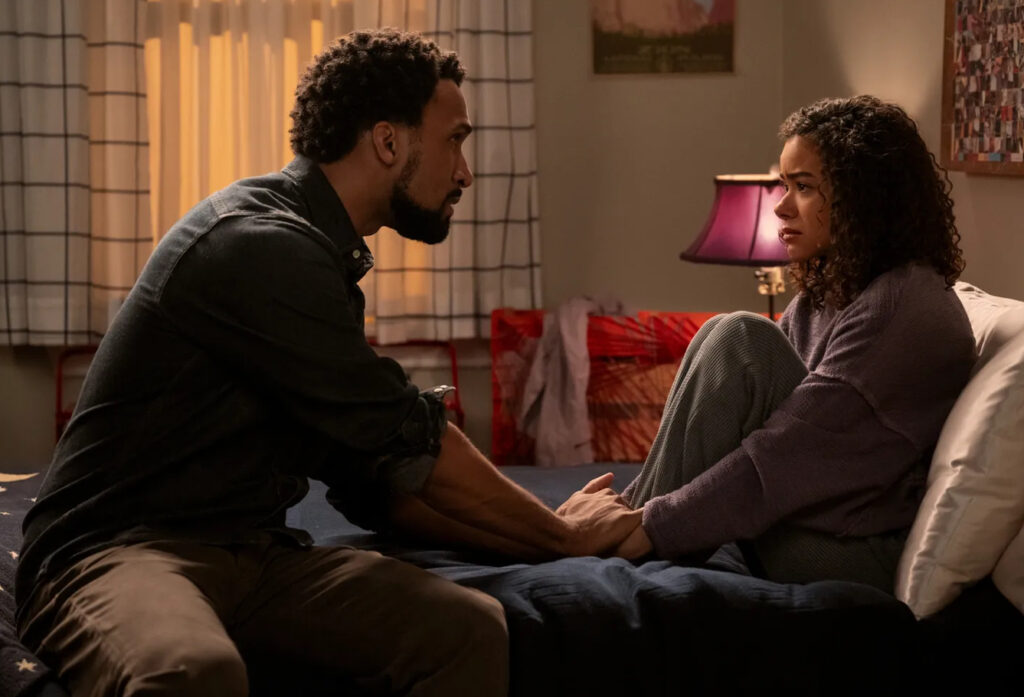In the golden age of streaming television, few shows have captivated audiences with as much tonal dexterity and narrative ambition as Ginny & Georgia. Equal parts mother-daughter melodrama, suburban noir, and coming-of-age chronicle, the series thrives on its ability to weave emotional intimacy with mystery, satire, and razor-sharp social commentary. The January 2023 release of season 2 intensified this dynamic, continuing to explore the tangled web of secrets, survival instincts, and generational trauma that define the Miller family.
With Georgia (Brianne Howey) and Ginny (Antonia Gentry) at the center, season 2 concluded on a thunderous note—one that collapsed the illusion of domestic peace the family had so precariously constructed. The show’s concluding twist didn’t just leave characters gasping for air—it shook the audience’s foundation of trust in the characters themselves. In its aftermath, fans were left to wait, analyze, and speculate. Now, with confirmation that Netflix is moving forward with season 3, the burning question returns: what does the future hold for Wellsbury’s most notorious family?
Recap: A Portrait of Emotional Fallout
To understand what lies ahead, one must first sift through the aftermath of season 2. Picking up directly after the reverse that Georgia had murdered her ex-husband Kenny—a secret Ginny unearthed in the season 1 finale—the second installment shifted from the charm of quirky secrets to the sobering weight of moral consequences. While the first season leaned into the allure of hidden truths, season 2 was unafraid to let them fester and unravel.
Ginny’s emotional journey becomes the heart of the show’s evolving narrative. Struggling with the psychological toll of her mother’s criminal past, she exhibits signs of anxiety, self-harm, and alienation. Her therapy sessions—and her poetry—serve as the vessel for self-exploration and coded confession. Gentry’s performance captures the painful duality of a teenager torn between loving her mother and fearing what that love might demand. The show doesn’t sanitize her pain; instead, it lets her sit in it.
Georgia, meanwhile, continues to navigate life with a lethal combination of charm, survivalist cunning, and moral ambiguity. Her relationship with Paul, Wellsbury’s town mayor, comes to represent the possibility of a new life—a life where she’s no longer defined by the ghosts of her past. Yet that past, as viewers have learned, is never buried for long.
The season culminates in Georgia being arrested at her wedding, just after marrying Paul in what was supposed to be a picture-perfect suburban moment. The charge: murder. Not of Kenny, but of Cynthia’s dying husband, Tom. This final twist—the carefully orchestrated mercy killing of a man in pain—raises the moral complexity yet again. Was it murder? Was it compassion? Or was it both?
Narrative Depth: Where Melodrama Meets Meaning
At its core, Ginny & Georgia is a show about the stories we tell to survive—and the costs of believing them. It unpacks motherhood, adolescence, identity, and the quiet violence of respectability politics with a dexterity rare for such a stylistically elastic series.
Season 2 leaned more heavily into the psychological ramifications of abuse, racism, and abandonment. Ginny’s experience as a biracial teenager in a predominantly white town is given more room to breathe, as is her burgeoning romance with Marcus (Felix Mallard), whose own mental health struggles highlight the invisibility of depression in teenage boys. This emotional maturity marks a tonal evolution for the series. It’s no longer content with simply entertaining; it wants to interrogate.
Georgia, for all her Southern charm and biting one-liners, remains a deeply tragic figure. Her past traumas—abuse, poverty, exploitation—are never excused, but they are explored with an empathetic lens. Her manipulations and lies become both survival mechanisms and stumbling blocks, often threatening the very stability she claims to be building for her children.
The show’s brilliance lies in this duality. It refuses to offer easy answers or moral binaries. Georgia is not a hero or villain—she is both, and neither, constantly shifting under the pressure of her choices.
Looking Forward: Season 3 and the Expanding Narrative Horizon
With season 3 confirmed, the stakes are higher than ever. Georgia’s arrest doesn’t just threaten her new marriage or her freedom—it threatens the psychological fabric of her family. Ginny, having finally found a sense of agency and clarity, must now contend with the legal and emotional fallout. Will she protect her mother again? Or will she draw a line between compassion and complicity?
Paul, too, is at a crossroads. As both Georgia’s husband and the town’s mayor, he must choose between loyalty and political pragmatism. Does he stand by her, even as she’s publicly vilified? Or does he sever ties to preserve his image?
Perhaps most compelling is the question of Wellsbury itself. The idyllic New England town has always functioned as both sanctuary and stage, a place where secrets can fester beneath manicured lawns. But now, those secrets are inescapable. Will the town rally around Georgia as a misunderstood antihero, or will it turn against her with puritanical judgment?
Showrunner Debra J. Fisher and creator Sarah Lampert have hinted that season 3 will delve deeper into Georgia’s backstory—likely through new flashbacks and revelations that recontextualize what we thought we knew. There’s also room to explore Ginny’s relationship with her father, Zion (Nathan Mitchell), who has consistently acted as her moral anchor and emotional safe haven.
And then there’s Austin (Diesel La Torraca), Georgia’s younger son, whose erratic behavior and exposure to violence suggest that the trauma of the Miller family is far from contained. His accidental witnessing of Georgia smothering Tom may become the narrative detonator for a deeper reckoning.
Stylistic Signatures: Tone as Texture
The tonal range of Ginny & Georgia has always been part of its secret sauce. One moment, it’s a biting social satire à la Desperate Housewives; the next, it’s a YA drama soaked in emotional sincerity. This hybridized style reflects the divided world of Ginny and Georgia themselves—between adolescence and adulthood, truth and performance, safety and danger.
Season 2 perfected this balancing act. Quippy dialogue, stylish visuals, and playful editing contrast starkly with the show’s heavier moments—creating a rhythm that feels both exhilarating and unnerving. The use of music remains another narrative tool: not simply background noise but a direct emotional conduit, particularly in scenes between Ginny and Marcus or during moments of inner collapse.
There’s also a cinematic quality to the show’s use of space. Georgia’s kitchen becomes a site of maternal control and veiled manipulation; Ginny’s bedroom, a space of introspection and self-harm. The suburban landscape, with its yoga moms and community fundraisers, is rendered as a façade—glossy on the outside, rotting within.
Culture: A Series That Speaks Volumes
Beyond its narrative prowess, Ginny & Georgia has carved a unique niche in the cultural conversation. The show has faced criticism—some valid—for tonal inconsistency, caricatured side characters, and occasional underdevelopment of racial themes. Yet, it has also sparked essential dialogue about mental health, maternal identity, and generational trauma.
Its success with younger audiences is no accident. Ginny’s struggles with self-image, belonging, and autonomy resonate deeply with Gen Z viewers, many of whom see their own fractured identities reflected on screen. Meanwhile, Georgia appeals to an older demographic—those who understand what it means to compromise, to perform, to protect at all costs.
The dual protagonist structure allows the show to traverse generational divides, offering a rare multi-lens narrative in a genre typically confined to a single age group. It invites viewers to empathize across lines of age, race, and morality—without demanding moral consensus.
Flow
Ginny & Georgia season 3 is not just a continuation—it’s a confrontation. A confrontation with truth, with justice, and with the fictions we create to survive the world, and ourselves. Whether Georgia walks free or finally pays the price for her past, and whether Ginny chooses to stand beside her or walk away, the show has already done something remarkable: it has refused to offer closure where there is only complexity.
No comments yet.








